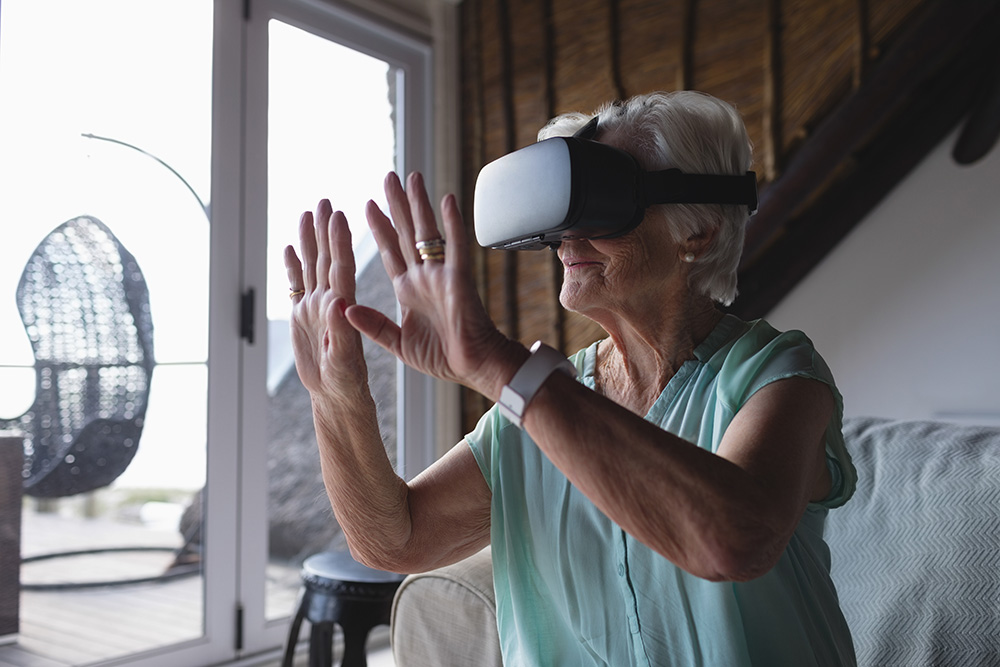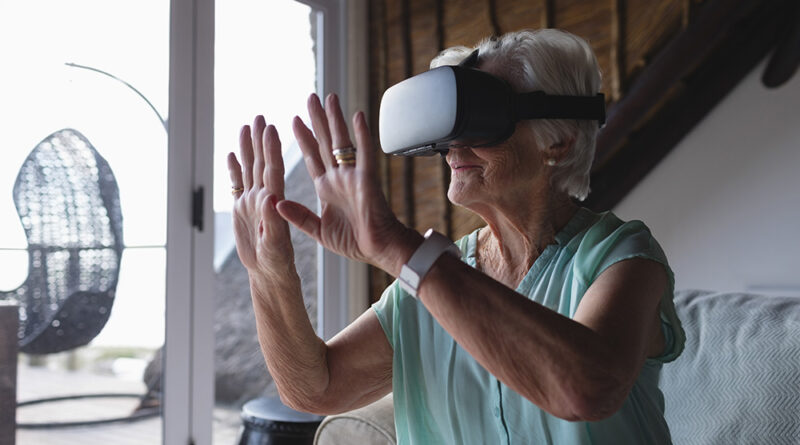Ontario Tech-led research exploring the promise of virtual reality (VR) in dementia care

Although emerging technologies such as virtual reality (VR) and artificial intelligence (AI) are often adopted first by new generations of society, new research at the University of Ontario Tech. shows new technology can play a big role in ‘‘reminiscence therapy’ – a type of psychotherapy that involves recalling past events to help people feel happier and have improved well-being.
Dr. Winnie Sun of Ontario Tech’s Faculty of Health Sciences is the lead author of a new research paper on a strategy to integrate VR therapy into dementia care. Dr. Sun and his research team at Ontario Tech are collaborating on a project with the Alzheimer’s Association of Durham Region and Neurofit VR, a Toronto-based company that develops web platforms and flexible working environments. of digital to facilitate neuro-rehabilitation.
The project also ties in with the work of the Advancement for Dementia Care Center (ADCC), a community-based partnership led by Ontario Tech and the Ontario Shores Center for Mental Health Sciences. ADCC seeks solutions to improve the quality of life of people with dementia and their carers through innovative research and the delivery of new technologies.
“Our early work with immersive technology like VR shows that many people with dementia don’t just find the experience good; they actually love what the technology can do for them, sometimes others reveal to them things they have not remembered for a long time,” says Dr. Sun. the music they love. The strong emotional response to these sudden memories is a surprise to people with dementia and their caregivers. This is ts ‘technological action, in the strongest possible moral and personal way.’
Using VR reminiscence therapy helps stimulate thoughts and emotional responses by infusing multiple emotions and can be particularly effective in comforting and reducing behavioral responses. When a person living with dementia uses reminiscence therapy, it can build deeper connections to the past and reduce stress. Using VR technology complements traditional methods by addressing the emotional and cognitive needs of a person living with dementia in a more profound way. It can also help relieve the stress of carers by allowing them to see the person living with dementia happy and engaged.
“Seeing VR in action was amazing and amazing,” says Dana Warner, Behavioral Supports Ontario RPN at ASDR. I wasn’t familiar with the use of advanced technology in dementia care and I wasn’t sure how the participants would respond to the treatment. Every week they were eager to come back and use the VR device again, with their care partners.”
How technology works
The study uses the Oculus Meta Quest 3 headset, which is designed to bring people into an immersive 3D world that feels close to real life. The headset can be configured to display a complete virtual reality environment, or ‘mixed reality’ by combining digital elements with your immediate environment (floor, walls, furniture), using -optical sensors in the headset.
Meta Quest 3’s high-definition graphics provide clear and detailed images, as well as a large field of view (90 to 120 degrees). The headset tricks your brain into perceiving depth and uses spatial sound, so sounds seem to come from specific areas around you, making the experience even more immersive.
The headset can also track hand movements, enabling visual interaction without the need for controllers. However, manual controls are optional, as are ‘adaptive triggers’ that can make certain movements feel more intuitive, such as increasing resistance when pulling on a bowstring.
What’s next for VR memory therapy?
The results of the research of Dr. Sun was recently published in the IEEE (Institute of Electrical and Electronics Engineering) Xplore Journal and is also being presented this summer at the Serious Gaming and Health Application Conference in Funchal, Portugal.
Dr. “All sorts of exciting questions are being raised following the success of our pilot project with the Alzheimer Society Durham Region,” says Sun. “Where can artificial intelligence come into the equation? ‘Powerful’ video games and easy-to-use tools that will be widely accepted? Can we partner with healthcare providers and expand into long-term care facilities to make these models of jobs to be found for the benefit of the needy?”
Important facts about dementia
- Dementia is a major health problem worldwide. Behavioral and psychological symptoms are complex and challenging for health care providers and caregivers.
- Many older adults, including people with dementia, want to continue living at home and age in place.
- As of January 2024, more than 730,000 Canadians are living with dementia. This number increases by 350 people every day. The total is expected to exceed one million by 2030, 1.7 million by 2050 (source: Alzheimer Society Canada).
- More than 25 different diseases and conditions can cause dementia. Alzheimer’s disease is the most common.
- There is no cure for dementia, and drug-based treatments can have many side effects. VR reminiscence therapy offers a non-pharmacological approach to dementia care, with encouraging results in helping people living with dementia remember people, places and events from their past lives.
Links to news related to Ontario Tech news
Information connection
Bryan Oliver
Communications and Marketing
Ontario Tech University
289.928.3653 (phone)
bryan.oliver@ontariotechu.ca
Dr. Winnie Sun, Faculty of Health Sciences, Ontario Tech University
“>
#Ontario #Techled #research #exploring #promise #virtual #reality #dementia #care
